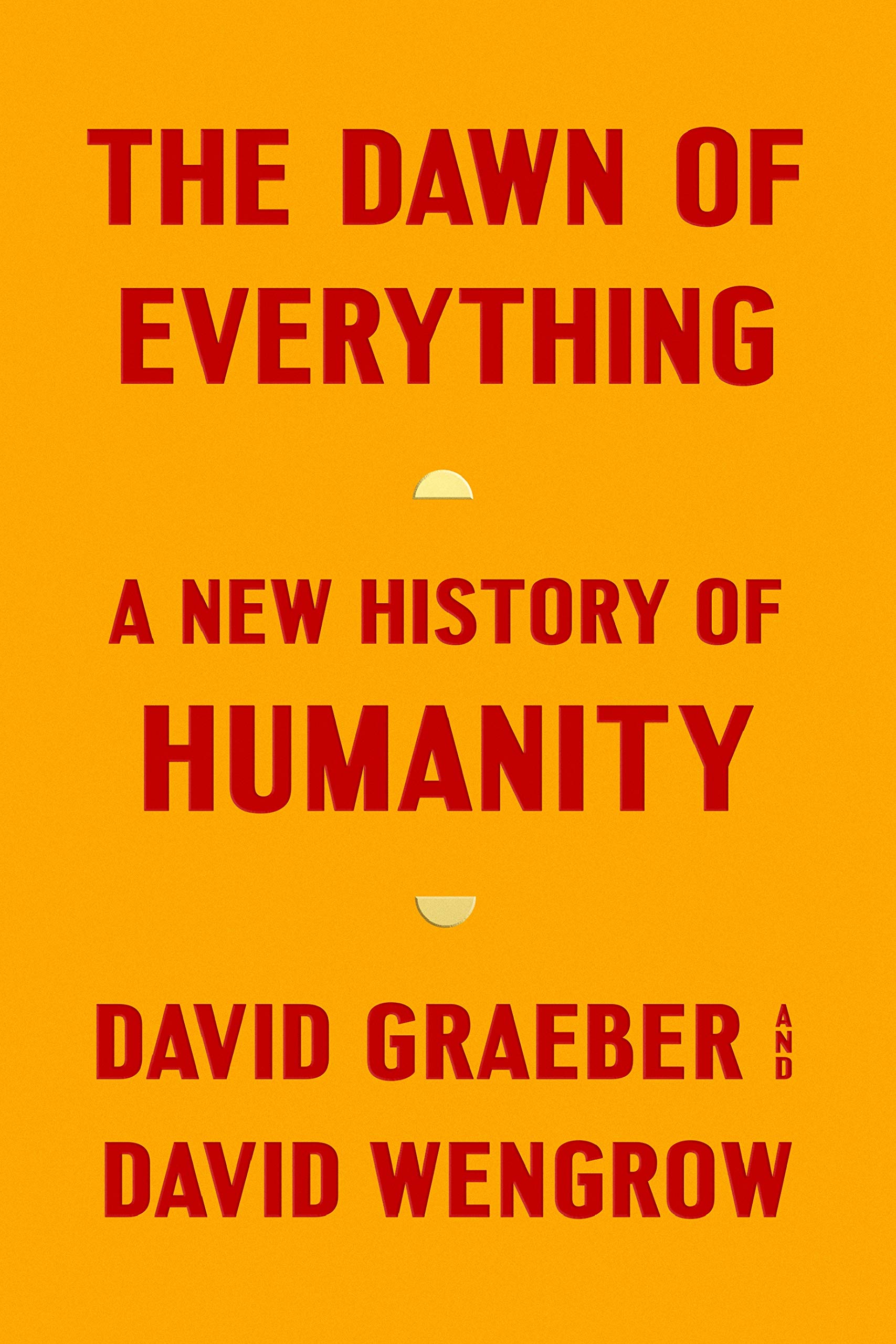
The Dawn of Everything: A New History of Humanity
A dramatically new understanding of human history, challenging our most fundamental assumptions about social evolution―from the development of agriculture and cities to the origins of the state, democracy, and inequality―and revealing new possibilities for human emancipation.For generations, our remote ancestors have been cast as primitive and childlike―either free and equal innocents, or thuggish and warlike. Civilization, we are told, could be achieved only by sacrificing those original freedoms or, alternatively, by taming our baser instincts. David Graeber and David Wengrow show how such theories first emerged in the eighteenth century as a conservative reaction to powerful critiques of European society posed by Indigenous observers and intellectuals. Revisiting this encounter has startling implications for how we make sense of human history today, including the origins of farming, property, cities, democracy, slavery, and civilization itself.Drawing on pathbreaking research in archaeology and anthropology, the authors show how history becomes a far more interesting place once we learn to throw off our conceptual shackles and perceive what’s really there. If humans did not spend 95 percent of their evolutionary past in tiny bands of hunter-gatherers, what were they doing all that time? If agriculture, and cities, did not mean a plunge into hierarchy and domination, then what kinds of social and economic organization did they lead to? The answers are often unexpected, and suggest that the course of human history may be less set in stone, and more full of playful, hopeful possibilities, than we tend to assume.The Dawn of Everything fundamentally transforms our understanding of the human past and offers a path toward imagining new forms of freedom, new ways of organizing society. This is a monumental book of formidable intellectual range, animated by curiosity, moral vision, and a faith in the power of direct action.Includes Black-and-White Illustrations
In his groundbreaking book, "The Dawn of Everything: A New History of Humanity", David Graeber challenges traditional notions of human history by presenting a radical new perspective on the origins of social inequality.
Graeber argues that the idea of a single, linear progression from hunter-gatherer societies to agricultural societies to the rise of civilization is a myth. Instead, he presents evidence of a wide variety of social and political arrangements that existed in the past, from egalitarian societies to hierarchical empires.
Graeber also challenges the notion that violence and warfare were inevitable in human history. He argues that many societies have existed without these things, and that the rise of violence and warfare is a relatively recent phenomenon.
"The Dawn of Everything" is a major work of scholarship that has the potential to change our understanding of human history. It is a must-read for anyone interested in the origins of inequality, the history of violence, or the future of humanity.
Here are some of the key takeaways from "The Dawn of Everything":
- There was no single, linear progression from hunter-gatherer societies to agricultural societies to the rise of civilization.
- Many different social and political arrangements existed in the past, from egalitarian societies to hierarchical empires.
- Violence and warfare were not inevitable in human history. Many societies have existed without these things.
- The rise of violence and warfare is a relatively recent phenomenon.
- Humans are capable of creating a more just and sustainable world if we learn from the lessons of the past.
"The Dawn of Everything" is a challenging and thought-provoking book that is sure to change the way you think about human history. It is a must-read for anyone interested in the origins of inequality, the history of violence, or the future of humanity.
Rating: